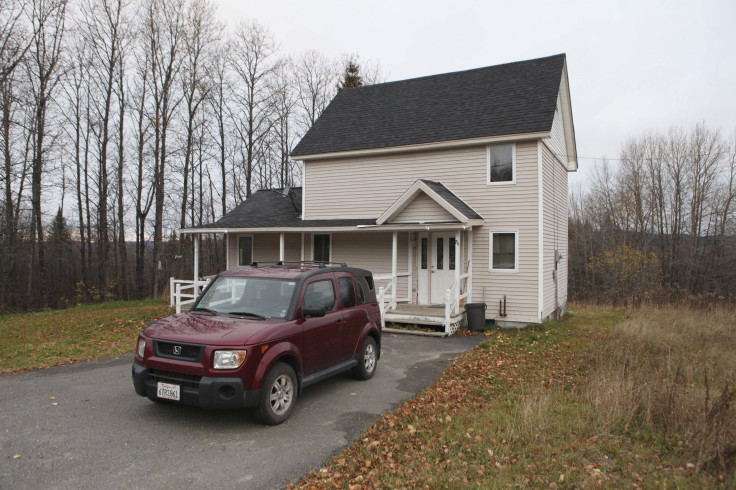Kaci Hickox Update: Maine Nurse May Leave Town, Go Out Of State After Quarantine Ends

Kaci Hickox, a Maine nurse who successfully fought a mandatory quarantine associated with her care of patients with Ebola virus disease, is planning to leave town and possibly move out of state. Hickox told WMTW Saturday she and her boyfriend, Ted Wilbur, will leave Fort Kent sometime after Monday -- the last day of the deadly disease’s 21-day incubation period in her case.
Wilbur withdrew from his classes Friday at the University of Maine in Fort Kent, where he was a senior nursing student. The school had asked Wilbur, who lives with Hickox, to stay away from its Fort Kent campus until Nov. 10, CBS News reported. Ray Phinney, associate dean of student life, said the university was willing to discuss the arrangement. Now, Hickox and Wilbur are thinking about relocating and looking at a college outside Maine, WMTW said.
Hickox and state officials reached an agreement last week that allows her to avoid an Ebola quarantine order until the end of the virus’ 21-day incubation period. The Maine nurse will coordinate her movements with health officials, monitor her own condition and report any symptoms through Monday.
“We just found common ground with the state of Maine,” Hickox’s lawyer, Norman Siegel, told ABC News. “You can find it, you just have to work hard and listen even if you disagree with them.”
Maine District Court Chief Judge Charles C. LaVerdiere ruled last week that state authorities did not adequately prove that isolating Hickox, who has twice tested negative for Ebola, was necessary to ensure public safety. Instead, LaVerdiere issued a temporary order for Hickox to self-monitor her health and coordinate movements with public-health officials.
A hearing scheduled Tuesday to confirm the order was canceled after Hickox agreed to abide by LaVerdiere’s terms. “I am humbled today by the judge’s decision and even more humbled by the support that we have received by the town of Fort Kent, the state of Maine, across the United States and even across the border,” Hickox told reporters. Fort Kent is across the St. John River from Canada.
A nurse working with Doctors Without Borders, Hickox was detained at Newark Liberty International Airport Oct. 24 upon her return from West Africa, where she treated Ebola patients. Authorities ordered her into mandatory quarantine against her will at a New Jersey hospital after she allegedly presented a fever, but agreed to transport her to Maine once she remained symptom-free for 24 hours.
Quarantining people who may have been exposed to Ebola in West Africa might appear to be a no-brainer, but the proposition is a legally fraught one. Legal experts said there are critical civil-rights, constitutional and other legal issues that must be weighed when a government considers instituting a quarantine.
The news of New York’s first and only confirmed Ebola patient, Dr. Craig Spencer -- who returned last month from treating patients with the disease in Guinea and was diagnosed with the virus within 48 hours of visiting public places and using public transportation -- caused many people to panic and led to the controversial Ebola mandatory-quarantine plans instituted by New York Gov. Andrew Cuomo and New Jersey Gov. Chris Christie.
Spencer’s condition was upgraded to stable from serious but stable this month, according to city health officials who say the New York physician has been responding well to treatment at Bellevue Hospital Center in Manhattan.
The Ebola outbreak in West Africa has claimed 4,818 lives since last December, with most of the deaths occurring in the West African countries of Guinea, Liberia and Sierra Leone, according to the latest figures provided by the World Health Organization. Overall, 13,043 cases have been diagnosed since the outbreak began, WHO reported Wednesday.
© Copyright IBTimes 2025. All rights reserved.





















